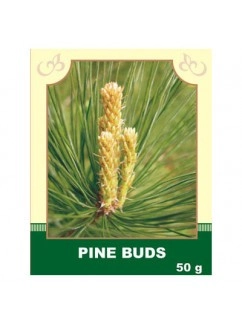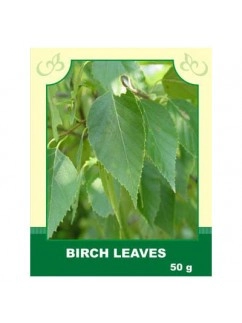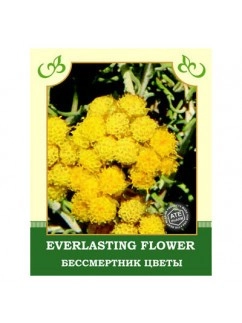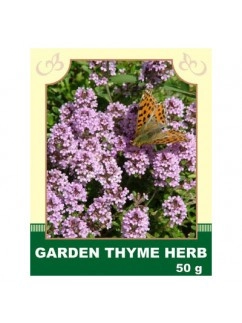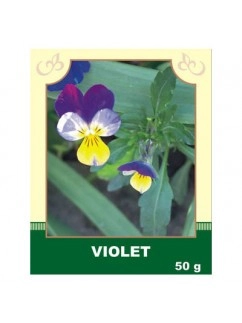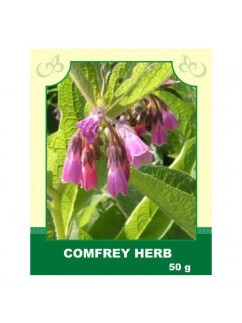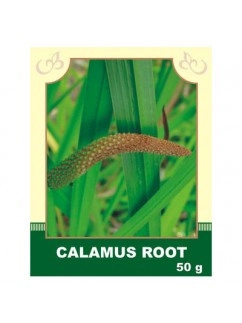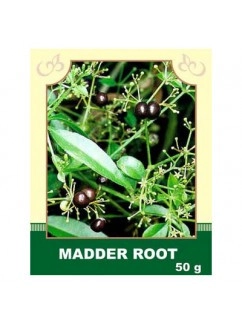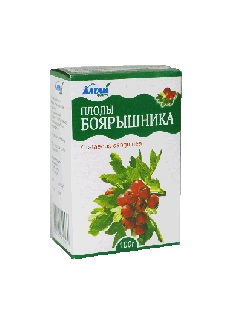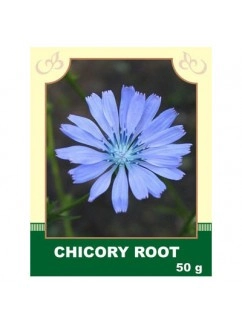Herbs
Internally: Taken as a remedy for cough in diseases of the upper respiratory tract, as an expectorant and disinfectant in chronic bronchitis, chronic tonsillitis, and acute respiratory diseases. Also possess diuretic and cholagogue properties.
Method of application and doses: 1 tablespoon of kidney pours 200 ml of boiling water, boils in a water bath for 30 minutes, infuses at room temperature for 10 minutes, strains, the resulting infusion is brought to the original volume with boiled water and taken in 1/2-1/3 glass 2-3 times a day after meals.
Externally: Applied in the form of baths in the treatment of the nervous and cardiovascular systems, rickets in children; as inhalations for diseases of the upper respiratory tract. For baths: 500 g per 5 liters of water boil for 30 minutes, strain, add the obtained decoction to the main bath.
Contraindications: Individual intolerance, in nephritis and nephrosis.
$7.99
Description. People have been using birch for therapy and healing since ancient times. Almost all parts of this tree have special properties valuable for health. Birch leaves act as anesthetic, anti-inflammatory, wound healing and antimicrobial. They help cope with pathogenic bacteria and fungi; improve blood circulation, and reduce thrombus from the smallest blood vessels.Birch leaves contain many of bioactive substances acids, flavonoids, rutin, tannins, vitamins C, E, PP and carotin. They help lower blood pressure. Use. Nowadays birch leaves preparations are used in cases of avitaminosis, edema, urinary bladder inflammation, atherosclerosis, kidney disorders and as cholagogic and expectorant. Leaves decoction is tonic and restorative and is useful for wet eczemas and climacteric neurosis. Birch leaves are used for flushing kidney and bladder stones, and for urinary infections. Preparations made of them are good for bronchitis, gastritis, stomach ulcers, edema and gout. Birch leaves are also valuable for various skin problems and help in coping with pathogenic microbes, fungi and inflammations. Finally they are known also to stimulate hair growth.
Attention! Before using any herbal products, make sure that you have full knowledge of how the herb works and any adverse reaction it may cause.$6.99
Description. Everlasting flower is an ancient herb, which has a long history of use. Traditionally this herb has been used for kidney and liver illnesses, and for gastrointestinal tract disorders. Everlasting flowers contain volatile oil, vitamins, glycosides, alcohol, tannins, fatty acids, minerals and trace elements. The properties of everlasting flower are anti-inflammatory, antibacterial, spasmolytic, cholagogic, diuretic and improving metabolism. The herb helps reduce cholesterol in blood. Use. Everlasting flowers can be taken as infusion, decoction or extract. Preparations of everlasting flowers are of great help for cholecystitis, cholelithiasis, hepatitis. An infusion is used in the treatment of gall bladder disorders and as a diuretic in treating rheumatism, cystitis etc. A homeopathic remedy is made from the flowering plant. It is used for gall bladder disorders and lumbago.
Attention! Before using any herbal products, make sure that you have full knowledge of how the herb works and any adverse reaction it may cause.$6.99
Description. It has been used through the centuries for many ailments, from epilepsy to melancholy. Nowadays, it is prescribed by herbalists for intestinal worms, gastrointestinal ailments, bronchial problems, laryngitis, diarrhea, and lack of appetite. It has antiseptic properties, and can be used as a mouthwash, skin cleanser, anti-fungal agent for athlete's foot and as an anti-parasitic for lice, scabies, and crabs. Garden Thyme herb tincture is a popular way of dropping bad habits and alcoholism is one of the. Garden Thyme arouses steady feeling of nausea and aversion towards alcohol. Use. Before the advent of modern antibiotics, it was used to medicate bandages. It has also been shown to be effective against the fungus that commonly infects toenails. A tea made by infusing the herb in water can be used for cough and bronchitis. Medicinally thyme is used for respiratory infections in the form of a tincture, tisane, salve, syrup or by steam inhalation. Because it is antiseptic, thyme boiled in water and cooled is very effective against inflammation of the throat when gargled 3 times a day. The inflammation will normally disappear in 2 - 5 days. Thyme is a good source of iron and is used widely in cooking.
Attention! Before using any herbal products, make sure that you have full knowledge of how the herb works and any adverse reaction it may cause.$6.99Internally: Violet tricolor is used as a means to stimulate kidney activity, diuretic, diaphoretic, and blood-purifying; tea from violet tricolor herb is consumed for rheumatism, rickets, lung diseases, gout, and osteoarthritis, as well as for joint rheumatism. Additionally, it is taken for cold cough and as an expectorant.
Method of application and doses: 1 tablespoon is poured with 200 ml of hot boiling water, heated in a boiling water bath for 15 minutes, cooled at room temperature for 45 minutes, strained. Take 1/2 cup 3-4 times a day before meals.
Externally: Used as mouthwash for inflammations of the upper respiratory tract and for compresses on wounds.
Contraindications: Individual intolerance.
$4.80Internal use:
Take internally the infusion of the roots for gastrointestinal diseases: diarrhea, dysentery, chronic catarrh of the intestines, stomach and intestinal ulcers, chronic catarrh of the respiratory organs with abundant sputum, hemoptysis, bleeding, paralysis, various skin diseases, ulcers, and wounds with simultaneous external application. The infusion and decoction of the roots have the remarkable property of enhancing the regeneration of various tissues, dulling pain, and promoting faster bone healing in fractures.
Method of application and dosage: Pour 1 tablespoon of marsh cinquefoil with 1 glass of boiling water, infuse in a warm place for 4-6 hours, strain through a dense fabric. Take 2 tablespoons 6 times a day before meals. Tincture: Pour 1 tablespoon of finely chopped roots with 100 ml of vodka and infuse for 10 days. Take 15-20 drops 3 times a day. Externally, the infusion of the roots is used for baths, washing, and compresses for fractures, dislocations, bruises, joint pain, jaundice, various skin diseases, and especially for the treatment of old, poorly healing wounds and ulcers. The alcohol tincture of the roots is used for anti-inflammatory and analgesic compresses.
Contraindications: Individual intolerance, during pregnancy and lactation. It is a poisonous plant, requires caution and strict dosage in consumption.
$6.99Internally, it is taken as a binding agent for stomach disorders, inflammation of the intestines, heartburn, and lack of appetite; for neurasthenia, convulsions, osteitis, bronchitis, pleurisy, diseases of the biliary tract, and in gynecology - for libido weakness, regulating the menstrual cycle, and enhancing sexual activity.
Method of application and dosage: 1 tablespoon is poured with 200 ml of boiling water, covered with a lid, and heated in a water bath for 15 minutes. Cooled for 45 minutes at room temperature, strained. The volume of the resulting infusion is brought to the original volume with boiled water. Take 1/4 cup 3-4 times a day 30 minutes before meals.
External use: applied for baldness and hair loss; for rinsing the oral cavity with stomatitis.
Contraindications: individual intolerance, during pregnancy, and with increased secretion (acidity) of the stomach.
$6.99Internal Use:
It gradually loosens and breaks down kidney, bladder, and gallbladder stones without significantly affecting blood pressure and breathing. It enhances heart contractions without noticeably affecting heart rhythm. It has diuretic and anti-inflammatory effects in the treatment of pyelonephritis, nephritis, and cystitis. It helps eliminate salts from the joints of the hands and legs. Under the influence of marjoram, urine turns pink-red, and stones come out in flakes.
Method of Application and Dosage: Infuse 1 teaspoon of crushed raw material in 200 ml of cold water, infuse for 8 hours, then strain the extract, and the raw material is re-infused with 200 ml of boiling water. After 15 minutes, strain again. Both infusions are mixed and consumed in several doses throughout the day before meals.
Contraindications: Individual intolerance, overdose is not allowed. Limit the consumption of products containing an excess of oxalic and citric acids. It is recommended to consume boiled meat, fish, vegetable oil, cereal dishes, beets, cucumbers, watermelons, melons, non-acidic varieties of apples, pears, plums, as marjoram can damage teeth. It is advisable to drink infusions through a straw and rinse your teeth.
$6.99- Hawthorn is a plant very popular in Chinese and Japanese medicine. The plant is believed to strengthen cardiovascular function. Hawthorn is also used as an aid to lower blood pressure, lower cholesterol, and treat some heart related diseases. The herb called the hawthorn is one of the best herbs to boost the performance of the heart and the human circulatory system in general. Regular supplementation with this herb can thus help bring some balance blood pressure and it is considered to be excellent for heart.$6.99
Internally: Has a beneficial effect on the state and efficiency of the nervous system. Chicory root improves the functioning of the gastrointestinal tract, urinary system, and contributes to lowering blood sugar levels. Enhances metabolism, significantly reducing body weight.
Method of application and doses: Grind into powder, pour 1 teaspoon with cold water (200 ml), and put it on the heat. Bring to a boil, infuse for 5-10 minutes. It is recommended to take one-third of a glass before breakfast, lunch, and dinner.
Contraindications: Individual intolerance.
$6.99


